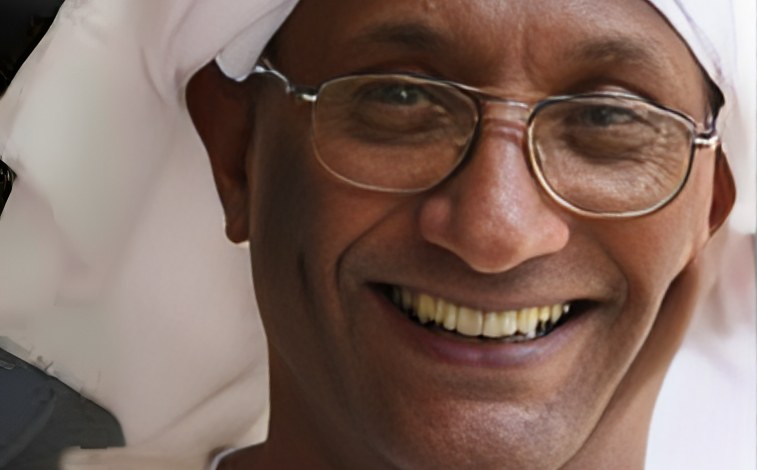IGAD: When the Sudanese Generals did not Meet face to face (2-2)

Abdullah Ali Ibrahim
Perhaps Sudan did not lose much from Lieutenant General Abdul Fattah Al-Burhan’s boycott of the conference of the Intergovernmental Authority on Development in Africa (IGAD) in Kampala on the 20th of January and the freezing of Sudan’s membership in it on the 24th of the same month, whether or not Sudan was right with its grievance against it.
IGAD conditioned stopping the war in Sudan on a face-to-face meeting between Generals Al-Burhan and Hemedti, and one does not know of a precedent in which the highest levels of leadership on both sides of the war agreed to stop it or something while it was still burning, both in and out. IGAD’s reliance on ending the war in Sudan by a knockout blow, that is, by meeting the two generals, brought the negotiations into contexts that disturbed its atmosphere instead of promoting it, let alone achieving an end to the war.
What is also surprising to him is that these countries in IGAD and others have experiences in the sequence of the army and militias in the national state. If they were guided by them, they would know that the ambition of the two generals may have been the last motive for the war in Sudan. No country has suffered with militias like Uganda suffered with the Lord’s Army. Uganda was upset for a time, and perhaps still is, because Sudan employed this army to fight the Sudan People’s Liberation Movement (SPLM) on the border between the two countries. Rwanda knows firsthand that the war between the state and the militias or armed movement has motives related to improving the construction of the post-colonial national state. Rwanda itself today was born from the brutality of the post-colonial state and the faltering negotiations towards its transformation from a state of subjects to a state of citizens. On the other hand, it is involved in the civil war in the Democratic Republic of the Congo. It has been proven that it supports the “M-23” movement, which has been terrorizing eastern Congo since 2012. The strength of this movement is the “Tutsi” people, who were subjected to the known “genocide” in 1994 in the Congo, and who complain of marginalization and weak representation in power there. However, on the other hand, it is fighting on behalf of the state of Rwanda, whose ruling circles are dominated by the Tutsis. The movement’s fight in the Congo is in the interest of Rwanda against the armed Rwandan Liberation Movement of the “Hutu” people in the Congo, and it is known that the “Hutu” were the ones behind the “Tutsi” genocide in Rwanda.
The “M-23” movement is similar to the Rapid Support movement (RSF), as “the population is not safe from it when its vanguard comes to them and they flee from it. Their saying that they are revolutionaries on the Guevara railway was not proven to those who believed them the first time. They attacked Gouma, which is the largest city in eastern Congo, in 2012, imposing an administration of high on people, beyond what they had previously complained about from their government. They vandalized the central bank, looted cars, and knocked on door after door to get people’s assets. They gang-raped and brutally executed whomever they chose. They took the cars after evacuating them to a place of theirs in Uganda, and returned with a campaign against Eastern Congo in 2023, causing about 100,000 of its people to flee. M-23 broadcasts, however, “civilians in our areas are in peace and security. We have stopped chaos and prohibited kidnapping and rape. Crimes do not occur with us, but in areas under government control.”
As for Kenya, it is more knowledgeable about the conflicts of the state and militants than others so much so that it was chosen by the United Nations in October 2023 to lead a multinational force to fight the gangs that took control of the state in Haiti, and Haiti is now ruled by an unelected government with no real jurisdiction over it. The matter is that the gangs control the ports and gas stations and run the city neighborhoods as they wish. The mission of the force that Kenya will lead has been to impose order and law to prepare Haiti for general elections. The Kenyan Foreign Minister welcomed the assignment “because it is not only about peace and security, but to rebuild Haiti politically and its economic development and its social stability,” an honor that raises Kenya’s reputation among countries for its past services in peace missions in troubled countries.
It happened that South Africa and Rwanda were the ones helping Mozambique in the war against the Islamic group Al-Shabaab (no relation to the Somali youth) in the north of the country, which is an Islamic movement that took up arms against the government six years ago. The two countries are working with the government, which is hiring an extremely weak military peasant group. Nabarma suppresses Al-Shabaab and enjoys independence from the army. Observers fear what it will become when it is victorious a transnational gang or a pawn of the government that subjugates people, noting that Nabarma is not just a military group, it is also a quasi-religious sect with a spiritual hierarchy of authority.
One has the right to ask why IGAD conditionalizing the cessation of the war in Sudan on meeting the two generals face to face, which it preferred. The issue, as we have seen, poses challenges to the modern national state, and none of these countries has experience in approaching it in one way or another.



